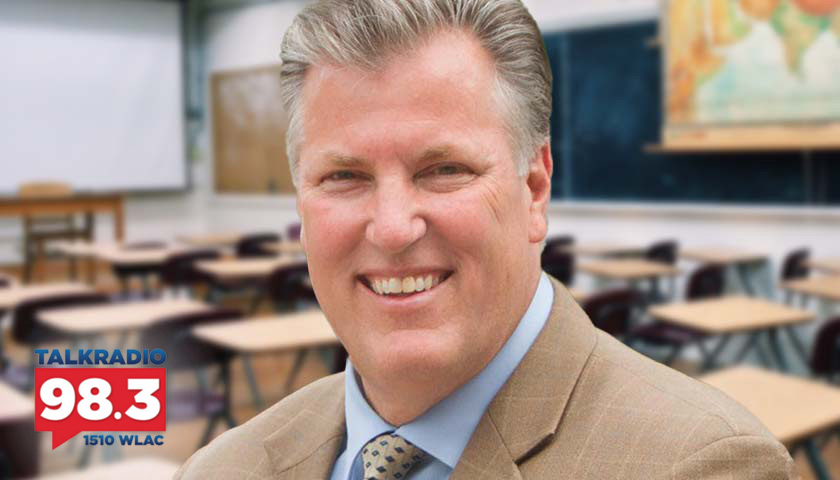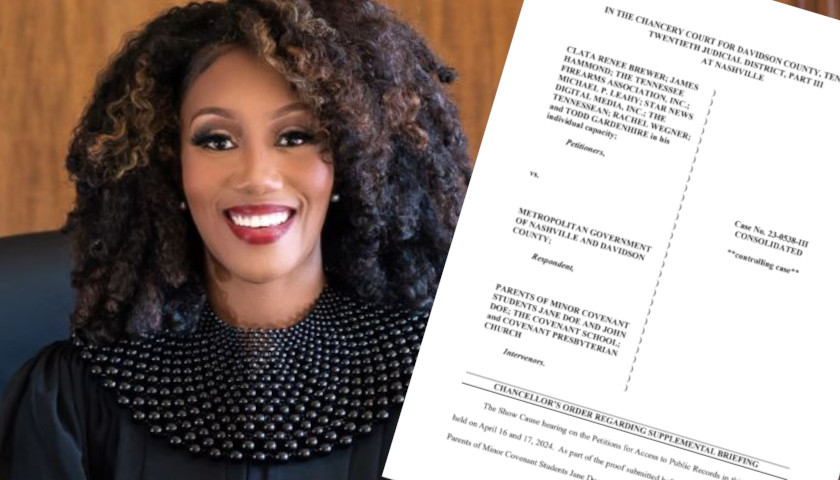Live from Music Row, Monday morning on The Tennessee Star Report with Michael Patrick Leahy – broadcast on Nashville’s Talk Radio 98.3 and 1510 WLAC weekdays from 5:00 a.m. to 8:00 a.m. – host Leahy welcomed (R-TN-64) Scott Cepicky to the newsmaker line to discuss third grade retention and what he’s hearing during his statewide listening tour from educators.
Leahy: We are joined on a newsmaker line now by our good friend state representative Scott Cepicky. Scott, of course, represents Maury County, but first things first. Scott, you’re the former starting punter way back when from the University of Wisconsin Badgers, a AAA baseball player for the next national sounds. What happened to Wisconsin Badgers? They lost the axe to Minnesota over the weekend. What happened?
Cepicky: Well, you’re trying to kill me with that, but, yeah, it’s pretty sad. The Badger program is suffering. It was one of the best programs in the country for probably almost 15 years under Barry Alvarez and looks like we kind of lost our way. But I think the hiring of Luke Fickle from Cincinnati will right the ship and put us back where we’re supposed to be.
Leahy: All right, well, of course. Now let’s go on to what’s going on in Tennessee. Scott, you have been an expert and a leader in educational reform in the Tennessee general assembly, but yet there are continued problems in education retention.
I guess you would talk about as an issue retention of students, retention of teachers. Tell us what you have planned for the Tennessee General Assembly when it convenes in January.
Cepicky: I’m here talking to everybody. I’ve been on another listening tour across Tennessee talking to teachers, and one thing they told me about the retention bill that we passed is that third graders will be retentioned if they don’t pass the Tennessee Ready test. Michael, it’s too late.
If they’re failing that test by third grade, it’s too late to retain them. And so what we’re working on is to expand that not only in the third grade, but all the way down to kindergarten to provide those necessary supports for the students of the interventions and some benchmark testing is to make sure that we can observe that they’re on track throughout the year so they don’t fall behind.
Bring the summer school issue back into kindergarten through third grade, the tutoring expansion and just giving the teachers more control over the classrooms to one, identify kids that are struggling, and number two, get them the necessary supports they need to be successful. But if you wait until third grade to retain them, Michael, it’s too late.
Leahy: The term retention, as you’re using it here in that bill has to do with holding back students that aren’t performing at a certain level for another year, correct?
Cepicky: That is correct. Yes, sir.
Leahy: Now, so you’ve been on a tour of the state talking to teachers. Tell us about that.
Cepicky: It’s been really interesting. My dad always told me he was in the military he said, if you really want to know how to run a war, you go and you talk to the boots on the ground while our teachers are the boots on the ground. And they have some great ideas.
They’ve had some stuff that’s really been eye-opening to me. There’s a comptroller report that I just had done that just came out asking if there are any type of differences in a grade level between a student that would be considered older, like starting later, versus one that was started early?
And Michael, the data in third and 6th grade is eye-opening. The performance difference between a student that is older versus one that is younger in each grade level. And so one of the things we’re going to look at is people try to start their kids as early as possible right now, and we’re seeing that that is detrimental to the educational outcome of that kid.
And so we’re looking at a bill to possibly put some type of age requirement or at least a test into first grade to allow the cognitive and emotional development of that child to just happen over an extra year in kindergarten if they need it, just an extra year.
And I think the results from what the data shows us is we could possibly take our literacy rates from the low 30s to the mid-40s to low 50s, which, Michael, would put us probably top ten in the country.
Leahy: Scott, let’s talk about this tour. Was it a formal tour? Where did you go? How many teachers did you talk to? What cities did you visit? What areas did you visit?
Cepicky: We went to Paris, Tennessee. We went to Memphis twice. Different parts of Memphis. We went down into Wayne County, obviously Murray County, Giles County went over into Franklin County, went into Cornersville area outdoors, Bradley County at Knoxville finished up last week.
We were with some teachers in Rutherford County just trying to bounce all over the state getting a feel for rural, urban, and suburban districts.
Leahy: So let’s talk about your visit to Rutherford County. Did you reach out and say, hey, we want to talk to teachers, or what was the venue, where was it held?
Cepicky: Great question. Representative Sparks and Representative Warner kind of both represent that area in Rufford County and there are some teachers over there that had some concerns about the direction of education.
And I’ve sunk my teeth into this where I kind of feel like I’ve got a good grasp of everything going on in education. They just wanted to have me come over and have a conversation with them.
We sat down at one of their elementary schools and just talk about education and where it is, what they see and what we see, and try to figure out if are we on the right path.
It is almost identical across the state talking to these different districts about the same things that the teachers are telling us. Go back to the fundamentals and basics, spend more time on fundamentals, and make sure the kids get the fundamentals. And that’s a recurring theme over and over and over again. That’s something we need to look into.
Leahy: Speaking of things to look into, one of the things that I’ve been championing has been the idea that part of our problem is that the federal Department of Education, which provides, I guess, about 10 percent of K-12 funding here in the state of Tennessee.
It has so many strings attached to it woke strings, if you will, to their funding that it has the impact of hurting K Twelve public education. I’ve long thought that we ought to tell the federal government we don’t want any of their money.
Do you see the possibility that anybody might introduce such a bill in the Tennessee General Assembly? And if they did, what would its chances of passing be?
Listen to today’s show highlights, including this interview:
– – –
Tune in weekdays from 5:00 – 8:00 a.m. to The Tennessee Star Report with Michael Patrick Leahy on Talk Radio 98.3 FM WLAC 1510. Listen online at iHeart Radio.
Photo “Scott Cepicky” by State Representative Scott Cepicky. Background Photo “Classroom” by Wokandapix.








